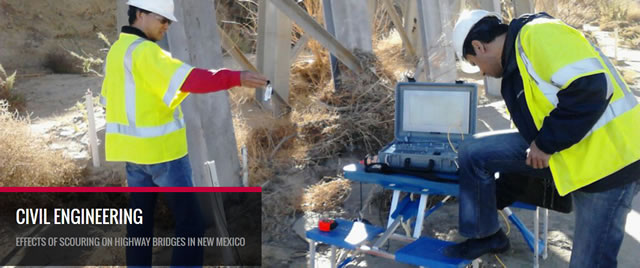
Civil Engineering ETDs
Publication Date
3-3-1966
Abstract
Earth embankments and the foundation upon which they rest are subject to abear stresses induced by their own weight. It the embankment serves as a water retention structure, additional shear stresses are developed by seepage forces originating from pore pressure, from the reservoir pool and from rainfall. In certain regions, earthquake forces must also be added to these gravity and water forces.
Prior to the turn or the century and tor thirty some years after, earth dam side slopes were selected on the basis of past experience in lieu of a theoretical analysis. Justin, a noted authority on earth dam design, summarized his feelings some years ago with the following recommendations: "Some engineers contend that the upstream slope should be flatter; others have claimed the opposite. A thorough study leads to the conclusion that neither is correct, as sometimes the upstream slope should be flatter and vice versa. In general the slope of the upstream face or that part of it to be under water, should not be steeper than one-half that at which the same material would stand out of water." It was also the opinion of a majority of the conferees at the first world congress of large dams that new dams should be patterned after successful dams with comparable sizes.
Document Type
Thesis
Language
English
Degree Name
Civil Engineering
Level of Degree
Masters
Department Name
Civil Engineering
First Committee Member (Chair)
Marion Marvin Cottrell
Second Committee Member
John Bryan Carney
Third Committee Member
James Tsu-Ping Yao
Recommended Citation
Boardman, James O.. "Electronic Computer Program For The Solution Of Slope Stability By The Wedge Method Of Analysis.." (1966). https://digitalrepository.unm.edu/ce_etds/269
